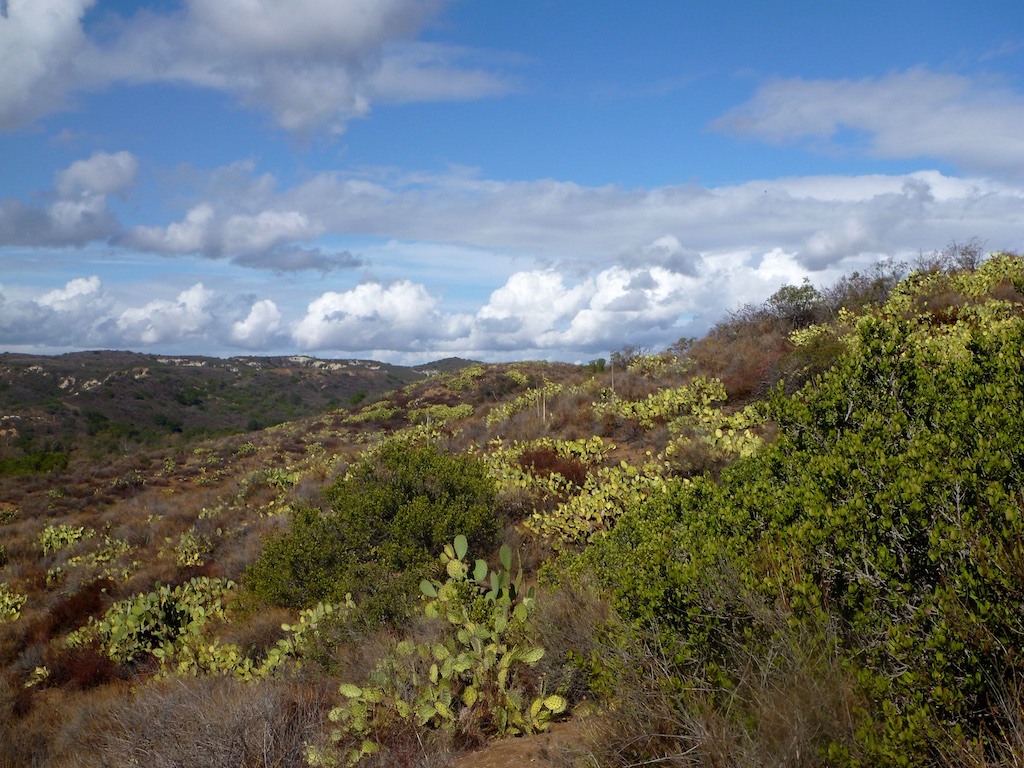By surrounding ourselves with landscapes that reflect the true nature of our region, we embrace the unique character that makes California such a wonderful place to live. The California garden is tended nature in miniature. It’s not about the plants. It’s about generosity. It’s about giving back to the land and giving oneself the pleasure and satisfaction of loving, getting involved, and tending a garden modeled after the natural beauty of the region. It’s about giving to everyone that sees and enjoys it, the opportunity to experience authentic California…
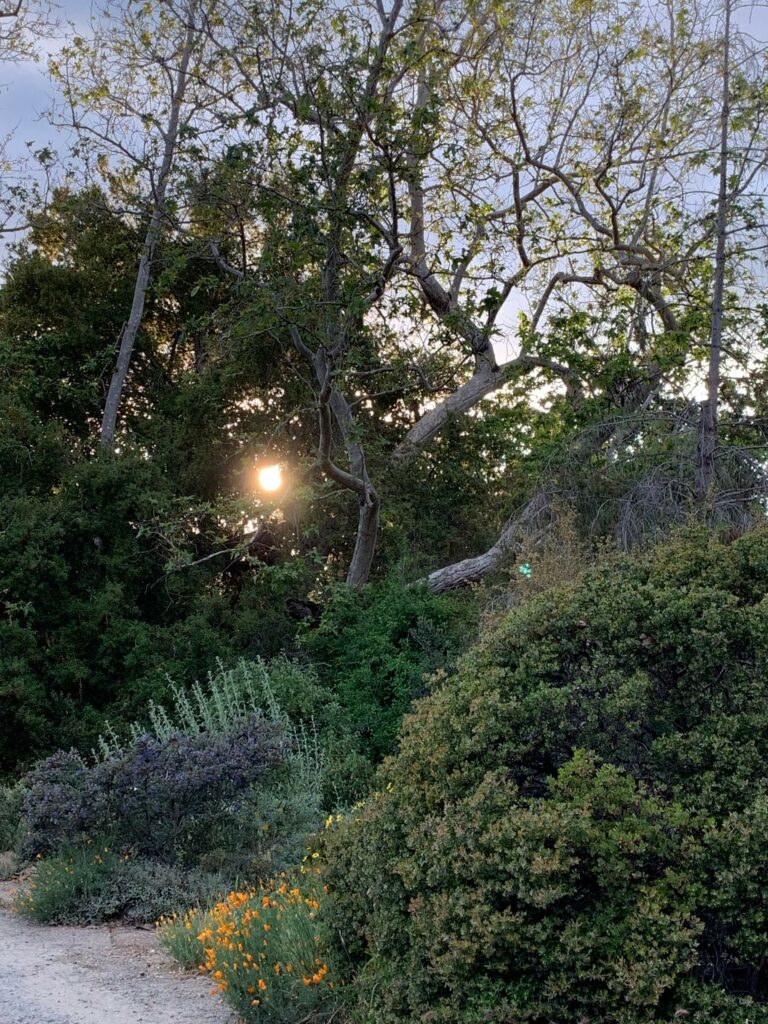
The ultimate reward for this effort is the reappearance of wildlife (songbirds, hummingbirds, beneficial insects lizards, etc.). These magical creatures will be drawn to nest, forage and seek cover in this newly restored bit of nature.
Naturalistic Plantings
Create a truly inspiring setting right outside your door! With a naturalistic approach to planting your outdoor spaces, you can add life, depth and a sense of intimacy, while stimulating the senses of those who seek the solace of the outdoors. This concept deals with gardens that nurture the spirit and bring the healing experience of nature up close. The following five principles are key to designing and caring for a California nature garden:
- Diversity of Natural Communities: Coastal sage scrub, oak woodland, chaparral and grassland themes should be the local models on a small scale when formulating your design and selecting plants. Choose one to several species of trees (evergreen and deciduous) and even more shrubs, subshrubs, herbaceous and woody perennials, succulents, bulbs, grasses and annuals. Naturalistic gardens display much greater species diversity than conventional landscapes, which tend to overuse the same few plants.
- Appropriate Spacing: In nature, you will observe areas that are sparsely vegetated. In the garden, this allows plants to grow to mature size and be admired individually. Bare places between plants reduces competition for moisture and minimizes pruning requirements. Birds and lizards use bare ground for hunting and foraging.
- Layered Plantings: Tall, medium and low plants growing together adds depth, interest, and privacy to gardens. A canopy layer, shrub layer and groundcover layer of locally native plants also increases habitat value.
- Natural Features: Borrowed from nature, these details lend authenticity and a sense of place to the California garden. Rocks and boulders, fallen branches, rolling mounds of soil, a dry streambed… all are artful and functional elements in naturalistic plantings. A water feature makes a wonderful focal point. Furniture, pottery, fencing and paths can be made of natural materials like twigs, clay, wood and stone.
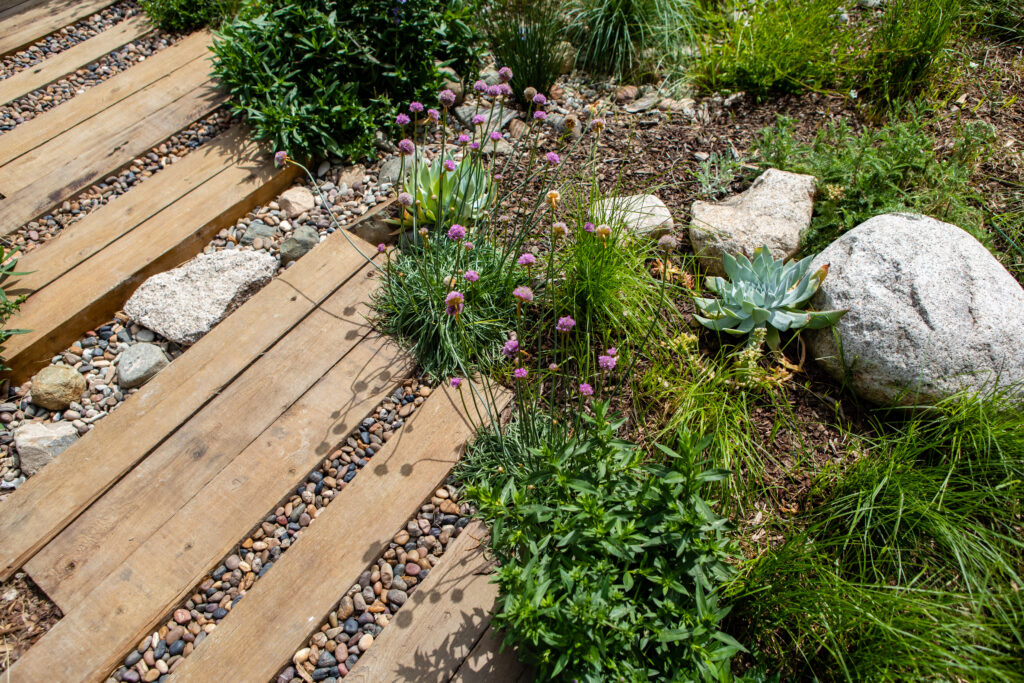
Loose arrangements of plants and other elements that represent nature… The soft lines, subtle textures and rich fragrance of the wild… The untamed spirit of authentic California
Maintenance Practices: A ‘hands-off’ approach is best for native, naturalistic plantings. Most importantly, water only when necessary. Become familiar with your soil type and how long it holds moisture. Also, the traditional standards of regular, heavy pruning, raking and spraying will not apply. Leaf litter should remain under plants and light pruning should only be done once a year, if necessary.
Chaparral Trail
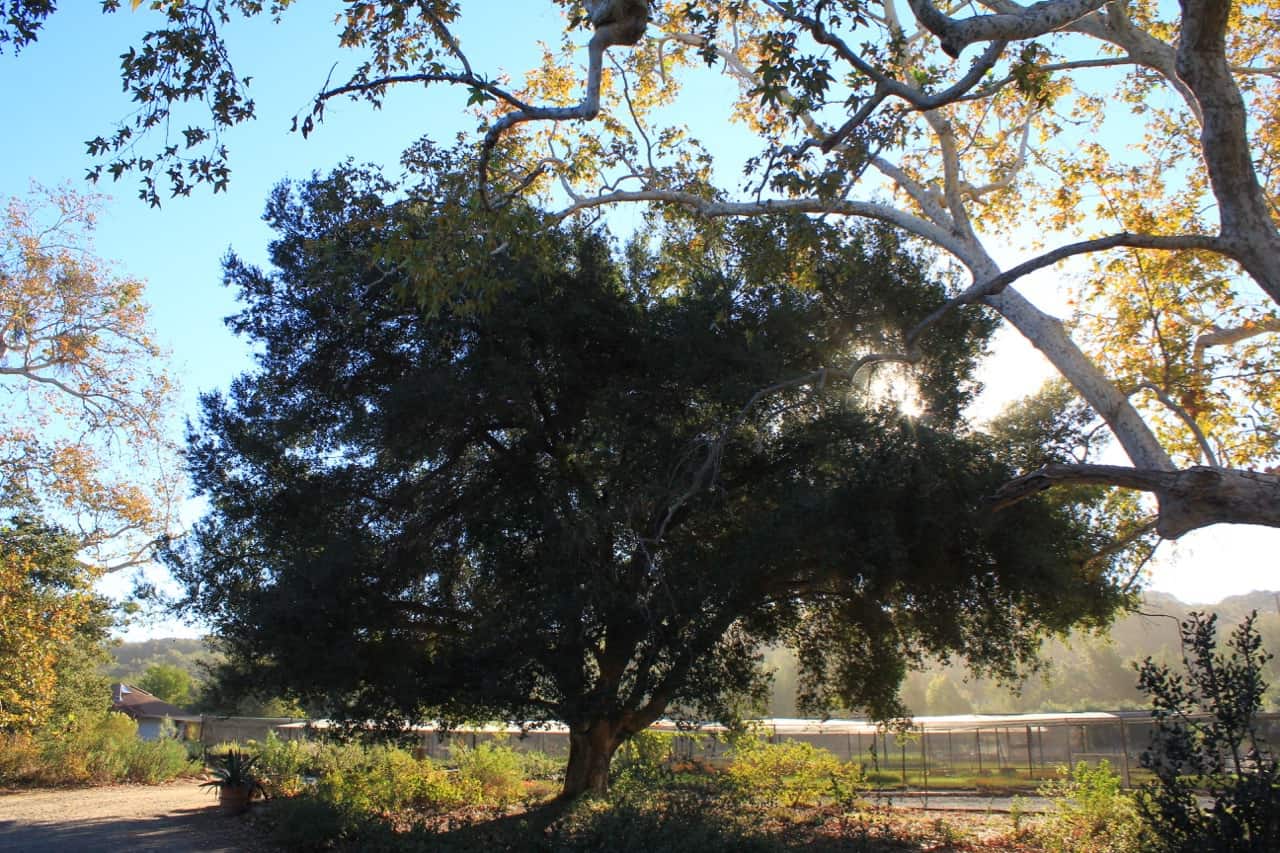
Quercus agrifolia, Coast live oak
Quercus engelmanii, Mesa oak
Heteromeles arbutifolia, Toyon, California holly
Rhus integrifolia, Lemonade berry
Arctostaphylos ‘Lester Rowntree’, Manzanita
Romneya ‘White Cloud’, Matilija poppy
Salvia clevelandii, Blue sage
Penstemon spectabilis, Showy penstemon
—add a few boulders and rustic walkways….
Woodland Garden
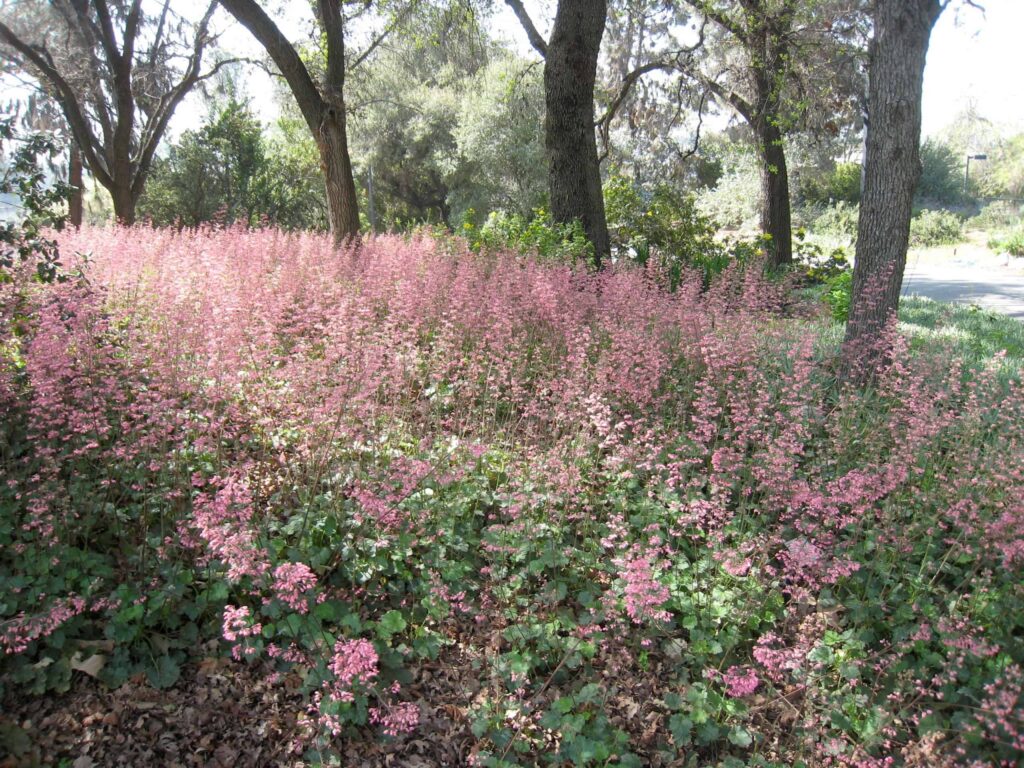
Pinus sabiniana, Foothill pine
Cercis occidentalis, Western redbud
Carpenteria californica, Bush anemone
Frangula (Rhamnus) californica, Coffeeberry
Mahonia ‘Golden Abundance’, Oregon grape
Salvia spathacea, Hummingbird sage
Monardella villosa, Coyote mint
—add some potted Irises and Monkeyflowers….
Southern Coastal Paradise
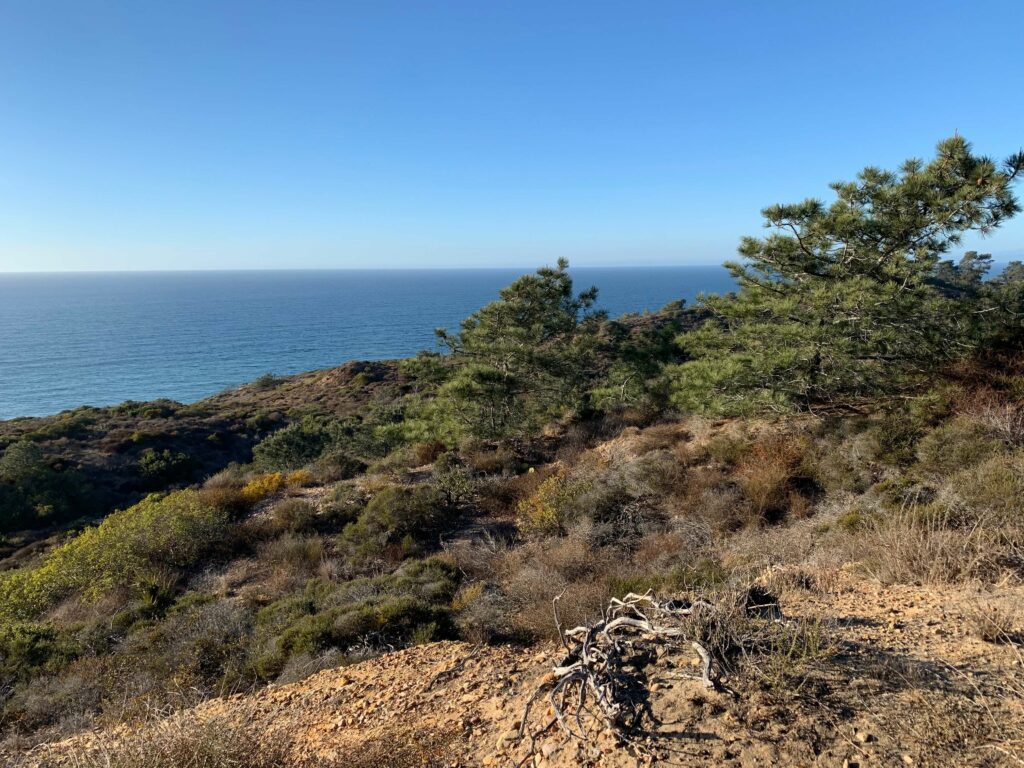
Pinus torreyana, Torrey pine
Ceanothus megacarpus, Big pod ceanothus
Dendromecon harfordii, Island bush poppy
Baccharis ‘Pigeon Point’, Coyote bush
Eriogonum ‘Dana Point’, Dana Point buckwheat
Encelia californica, Coast sunflower
Epilobium canum, California fuchsia
Diplacus aurantiacus var. puniceus, Red monkeyflower
—add seeded wildflowers on a hillside….
Mountain Meadow
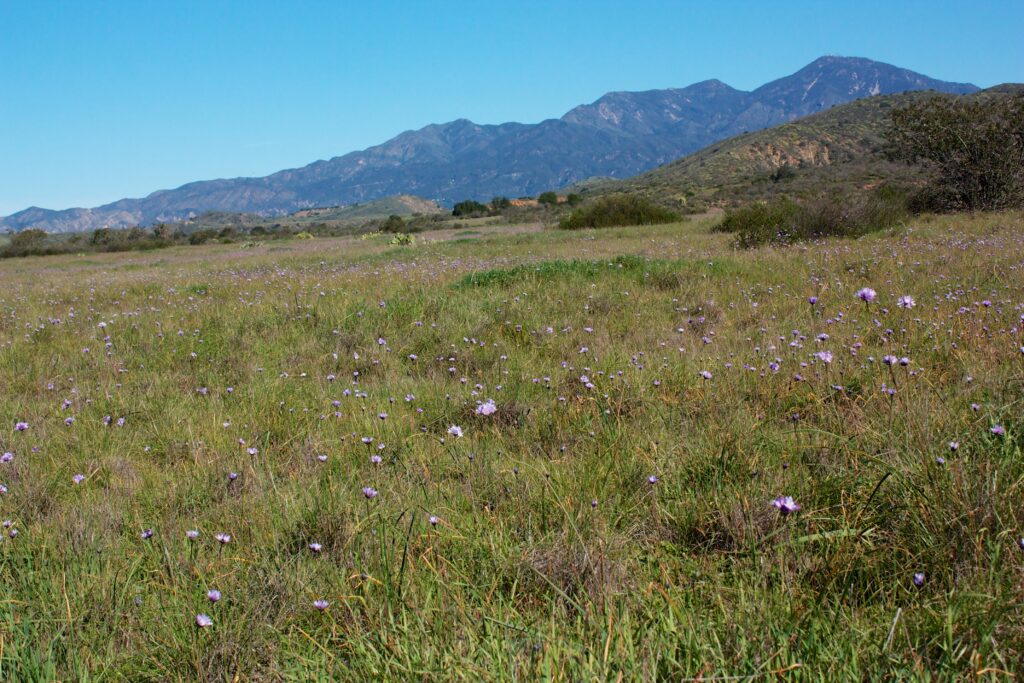
Mahonia ‘Golden Abundance’, Oregon grape
Ribes aureum, Bitter gooseberry
Deschampsia caespitosa, Tufted hairgrass
Solidago californica, California goldenrod
Fragaria vesca, Wild strawberry
—add a shallow pond…
San Diego Foothill Courtyard
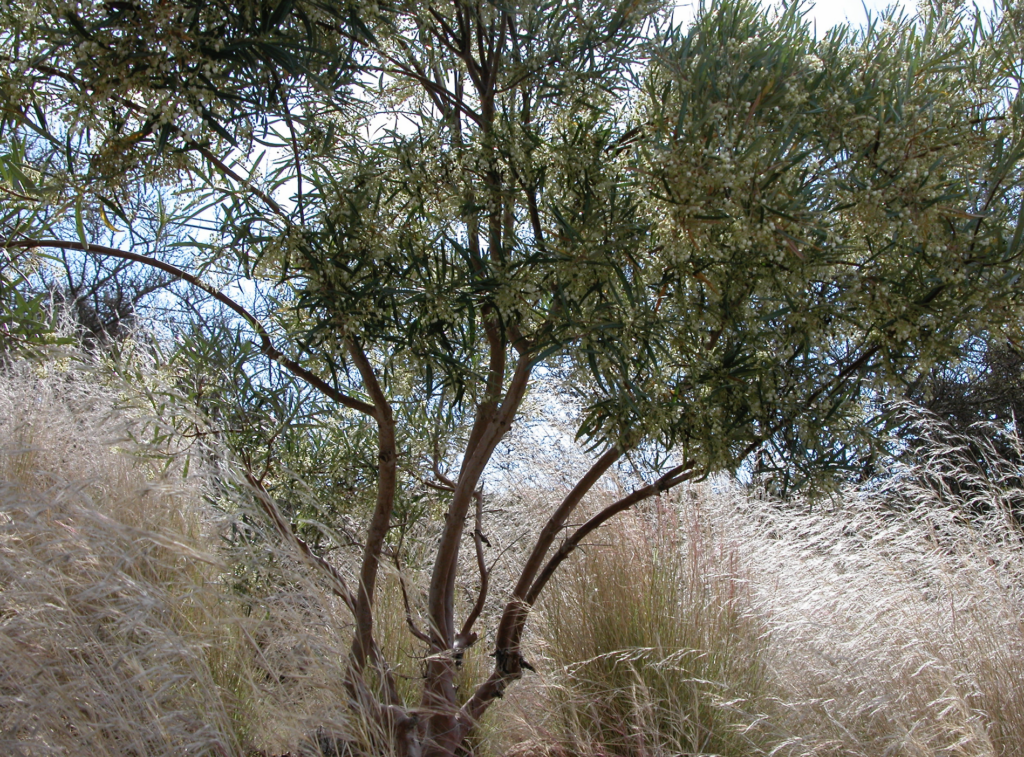
Ornithostaphylos oppositifolia, Baja bird bush
Arctostaphylos otayensis, Otay manzanita
Xylococcus bicolor, Mission manzanita
Romneya coulteri, Matilija poppy
Trichostema lanatum, Woolly blue curls
Viguiera laciniata, San Diego sunflower
Asclepias fascicularis, Narrow-leaf milkweed
Epilobium canum, California fuchsia
Lessingia filaginifolia, California aster
—add a water source for butterflies and birds….
Shaded Canyon Hideaway
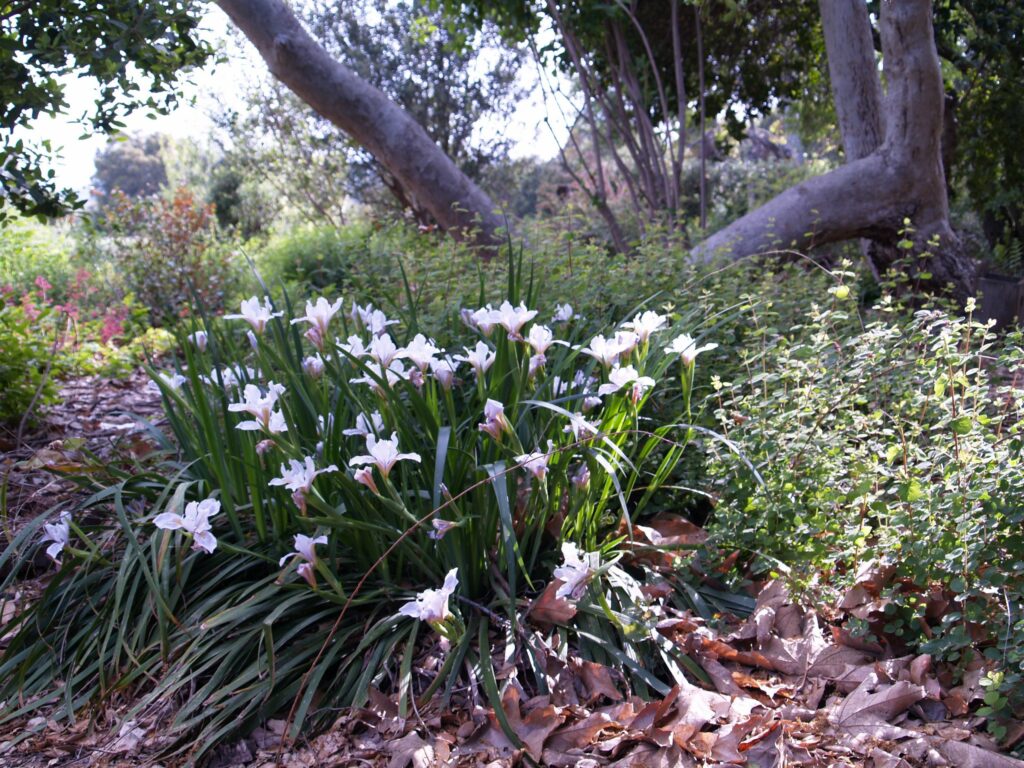
Quercus agrifolia, Coast live oak
Carpenteria californica, Bush anemone
Ribes malvaceum, Chaparral currant
Iris douglasiana, Coast iris
Salvia spathacea, Hummingbird sage
Aquilegia formosa, Red columbine
Arctostaphylos uva-ursi, Bearberry manzanita
—add a winding dry creek bed….
Island Retreat
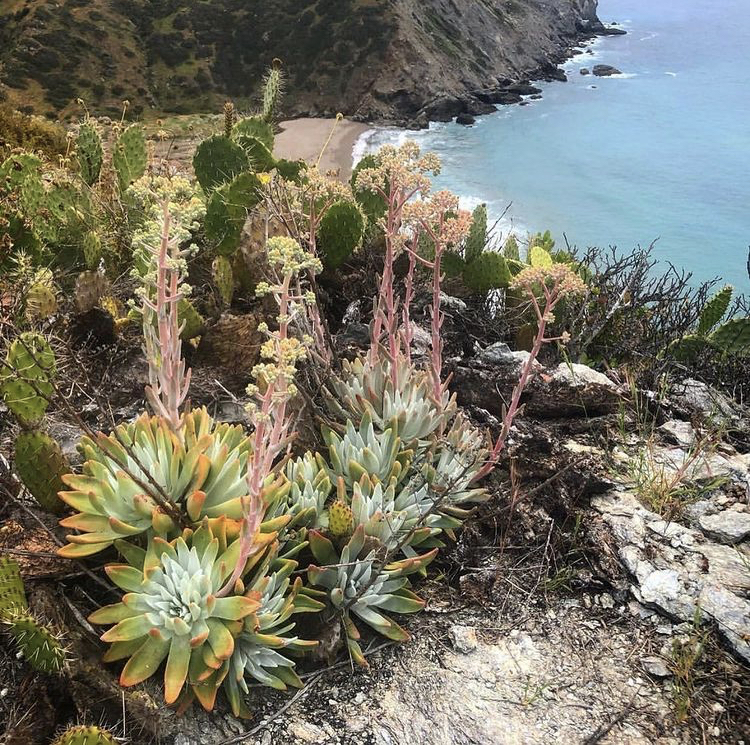
Lyonothamnus floribundus aspleniifolius, Ironwood
Arctostaphylos catalinae, Catalina island manzanita
Ceanothus ‘Ray Hartman’, Wild lilac
Dendromecon harfordii, Island bush poppy
Galvezia speciosa, Island snapdragon
Eriogonum giganteum, St. Catherine’s lace
Ribes viburnifolium, Evergreen currant
Heuchera maxima, Island alumroot
Acmispon argophyllus var. argenteus, Silver lotus
—add a few well-placed benches….
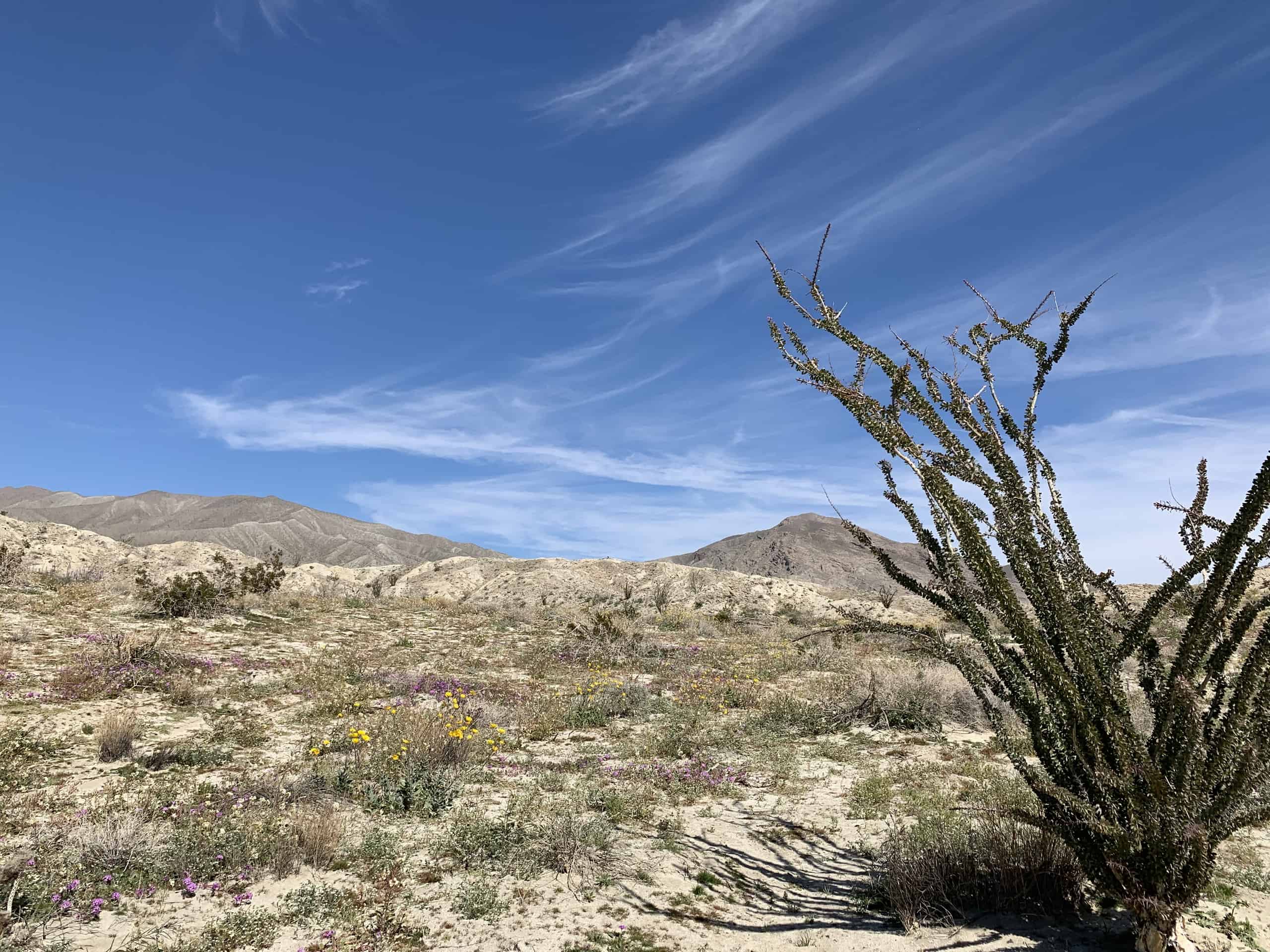
Desert Paradise
Parkinsonia floridum, Palo verde
Chilopsis linearis, Desert willow
Simmondsia chinensis, Jojoba
Justicia californica, Chuparosa
Encelia farinosa, Brittlebush
Sphaeralcea ambigua, Apricot mallow
Penstemon centranthifolius, Scarlet bugler
—add a low adobe wall…
